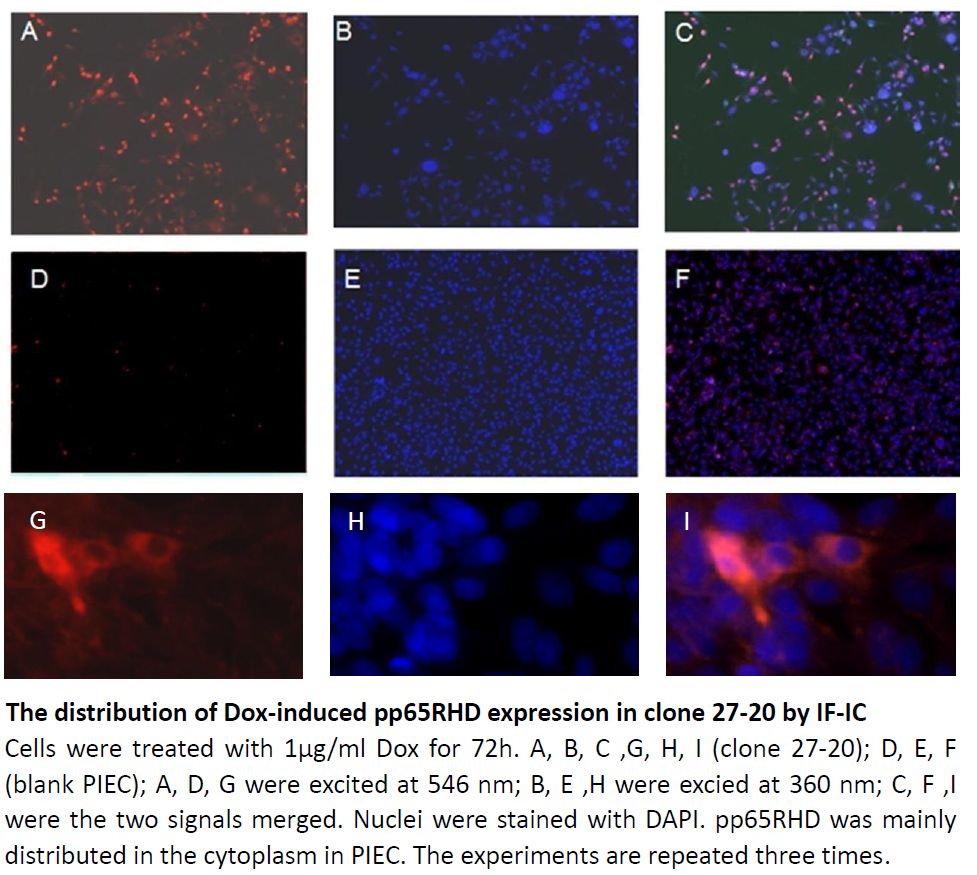Spatiotemporal Control of Porcine p65RHD Expression in PIEC Cells Helps Regulate NFкB Activity
Source: Author: Date:2014-09-18
Xenotransplantation could provide the hope for patients in need of organ transplantation, but immune rejection is a difficult unsolved problem. Although the use of organs from alpha1,3-galactosyltransferase gene knockout pigs may prolong xenograft survival, overcoming antibody-mediated hyperacute rejection, pig exengrafts will be destroyed directly by cell-mediated immunity, for example NFкB transcription activation in endothelial cells. Therefore, conquering cell-mediated immunity activated by NFкB is of particular importance to the success of pig long-term xenograft survival. However, knockout of NFкB will lead to the death of pigs. So, in order to treat xenograft rejection, it is necessary to inhibit NFκB in a spatiotemporal manner. Overexpression of a dominant negative mutant of porcine NFκB p65 (pp65RHD), which contains sequences necessary for DNA binding, nuclear localization, dimerization, and IkBα binding, inhibits pp65-induced NFкB activation in endothelial cells. So, conditional expression of pp65RHD helps inhibit cell-mediated immunity.

Recently, researchers from the Institute of Animal Sciences of Chinese Academy of Agricultural Sciences (CAAS) have presented an advanced tetracycline-regulated system for pp65RHD spatiotemporal expression in porcine iliac endothelial cell line (PIEC). In this system, an endothelial specific promoter ICAM-2 is used to improve pTet-On and internal ribosome entry site (IRES)as well as enhanced green fluorescent protein (EGFP) elements are used to facilitate the result observation in pTRE-Tight. The final results supported the overexpression of pp65RHD in one clone could successfully inhibit NFкB activity. The success of pp65RHD spatiotemporal expression system is helpful to regulate NFкB activity, conquering cell-mediated immunity. The result of this study implicated that the combination of pp65RHD oversxpression system with α-1,3-Galactosyltransferase knock-out pigs may let rejection more soft and let porcine tissue xenograft survival live longer.
This research was mainly supported by National Natural Science Foundation of China (31372276), Innovation Project of Chinese Academy of Agricultural Sciences. The research result was published in Mol Biol Rep (2014) 41:1753–1761. The Target Selection Team at Global Medical Discovery has identified this publication as a Key Scientific Article contributing to excellence in biomedical research and featured it in the Global Medical Discovery Series in May 16, 2014.